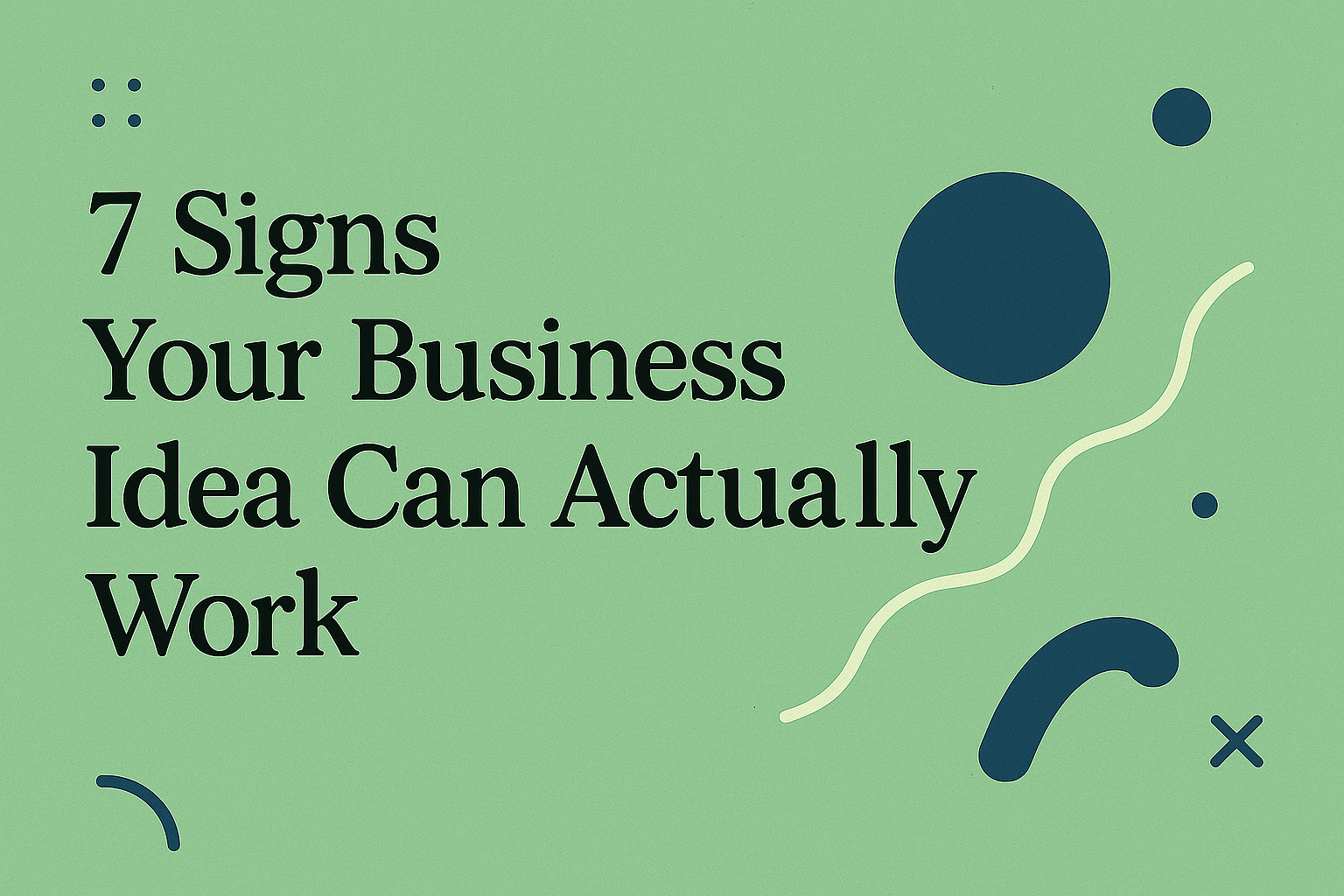Introduction
Every entrepreneur starts with an idea — but how do you know if that idea can actually succeed in the real world? The truth is, not every concept, no matter how exciting, will turn into a profitable business. What separates a dream from a viable venture is validation, planning, and practical insight.
Before investing time or money, it’s crucial to evaluate your idea through specific indicators. These seven signs will help you determine whether your business idea has the potential to grow, attract customers, and deliver sustainable profit. By understanding these factors early, you can refine your concept and move forward with confidence.
Market Demand
The most important sign of a successful business idea is real market demand. If people truly need or want what you’re offering, your business already has a foundation to build upon.
Start by asking yourself: “Who needs this, and why?” Conduct simple surveys, analyze online searches, or check existing sales data. If competitors already exist, that’s a positive sign — it means there’s a proven market. The goal is not to avoid competition but to understand it and position yourself strategically.
When your product or service solves a genuine problem or fulfills a consistent need, demand will naturally follow. A strong market base is always the first sign that your idea can turn into a profitable reality.
Unique Value
Having a business idea that fills a market need is great, but to stand out, you need a unique value proposition (UVP). This defines what makes your product or service different why customers should choose you over others.
Your UVP could be better quality, lower cost, faster service, or something more personal like brand values or experience. For instance, a café might compete in a crowded market but still thrive by emphasizing locally sourced ingredients or sustainable packaging.
Your ability to clearly communicate your uniqueness helps shape your brand identity, marketing message, and overall business strategy. If you can confidently answer “Why us?” — you have a winning advantage.
Low Competition
Some competition is healthy, but excessive competition can make it hard to grow. If your market is flooded with similar businesses offering the same solution, customers might not see a reason to switch.
The best business ideas often live in the balance between proven demand and manageable competition. Analyze what others are doing and look for untapped niches. Maybe you can offer better pricing, superior service, or a more personalized experience.
Low competition doesn’t always mean no one else is doing it — it means few are doing it well. Finding and owning that gap gives your business space to breathe and expand.
Affordable Setup
Many entrepreneurs underestimate the importance of financial feasibility. A great idea that’s too expensive to start or maintain can quickly fail before it gains traction. A sign your idea can work is when the setup costs are affordable and allow gradual growth.
Some good indicators of financial practicality include:
- Low Initial Investment: You can launch using minimal capital or existing resources.
- Manageable Overheads: The ongoing costs like rent, staff, or software subscriptions remain sustainable.
A business that starts lean and adapts smartly will survive challenges better. It’s not about spending more; it’s about spending wisely and reinvesting your profits into scaling the business responsibly.
Scalability
A truly strong business idea is one that can grow without excessive effort or cost. Scalability means that as demand increases, your business can expand efficiently — whether through automation, outsourcing, or digital platforms.
For example, an online course creator or e-commerce brand can sell to thousands of customers worldwide without major additional expenses. Similarly, a service provider can hire freelancers to manage extra workload instead of full-time employees.
If your business model allows you to reach more customers and generate more income without doubling your workload, that’s a clear sign of long-term success potential. Scalability transforms small ventures into sustainable enterprises.
Passion Factor
A business driven by passion is far more likely to succeed. Passion gives you the energy to overcome setbacks, stay focused, and continuously improve your product or service.
Here’s how to know if your passion aligns with your business:
- You Enjoy the Work: You find genuine satisfaction in what you’re building, even when it’s challenging.
- You Stay Curious: You’re willing to keep learning about your field, trends, and customer needs.
Passion fuels perseverance and perseverance often decides who survives in competitive industries. When you truly believe in your idea, you’ll keep pushing through slow starts and tough phases until it finds success.
Conclusion
Turning an idea into a successful business isn’t about luck it’s about understanding key signals of viability. A strong business idea shows clear signs of demand, unique value, balanced competition, affordability, scalability, and personal commitment.
Before jumping into full launch mode, take time to test your idea. Share prototypes, run small ad campaigns, or gather feedback from potential customers. These early insights are priceless and help refine your product before big investments.
Remember, every great company started as a simple concept but the difference lies in validation and execution. If your business idea checks most of these seven boxes, you’re not just guessing you’re building something with real potential to work, grow, and last.


